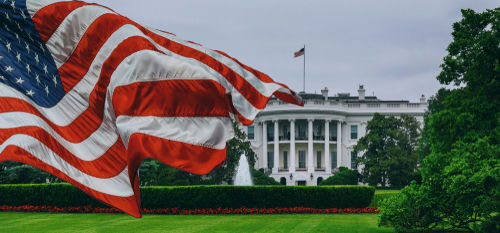The murder of a young congressional intern in D.C. has exposed the dangerous failures of lax local crime policies and the decisive response now coming from a Trump administration determined to restore order—despite fierce resistance from the left.
Grieving Mother Demands Action as D.C. Crime Crisis Peaks
On June 30, 2025, Eric Tarpinian-Jachym—a 21-year-old congressional intern—was gunned down in a central, high-traffic area of Washington, D.C. His mother, Tamara Jachym, quickly became a national voice for victims, lambasting the D.C. Council’s ongoing leniency toward juvenile offenders. She accused local officials of prioritizing political agendas over public safety and insisted that her son’s death was a direct result of failed progressive reforms. Jachym’s demand for tougher laws reflects a growing frustration among families who feel betrayed by a system more concerned with rehabilitation than justice.
Eric’s murder comes after years of rising violent youth crime in the District, where shootings and carjackings by juveniles have become tragically common. The D.C. Council, long criticized for bail reform and reduced juvenile sentencing, passed the Secure DC Omnibus Amendment and rushed through a new emergency curfew law after mounting pressure. Yet, many residents argue these measures are too little, too late. For conservative Americans, the tragedy is yet another painful reminder of where “soft on crime” policies—inspired by progressive activists—lead: unsafe streets and devastated families. The victim’s role as a congressional intern further magnified the story, drawing national attention and sparking demands for accountability at all levels of government.
Trump Administration Steps In: Federal Control Sparks Fierce Debate
In a historic and highly controversial move, President Trump responded to the crisis by placing the D.C. Metropolitan Police Department under federal control and activating the National Guard on August 11, 2025. This direct federal intervention, almost unheard of in American cities, was aimed at restoring order where local leaders had failed. The Trump administration’s swift actions were met with gratitude by victims’ families and law-and-order advocates, but they triggered immediate backlash from D.C.’s Democratic establishment. Senate Minority Leader Chuck Schumer and D.C. Attorney General Brian Schwalb decried the takeover as “federal overreach,” launching lawsuits to block Trump’s actions. The resulting legal and political battles have put the question of who controls public safety—and whose values will prevail—at the center of national debate.
Federal control means a dramatic expansion of law enforcement presence and a no-nonsense approach to curbing violent crime. The National Guard is now on patrol, and the D.C. police are following strict new directives. President Trump has called for prosecuting violent juveniles as adults starting at age 14, a stance echoed by U.S. Attorney Jeanine Pirro, who has condemned the current D.C. juvenile system as ineffective and dangerous. For many conservatives, these steps are long overdue, finally putting the safety of law-abiding citizens ahead of the “restorative justice” experiments that have failed the nation’s capital.
Legal Battles and Legislative Changes: What’s Next for D.C.?
As federal control continues, the D.C. Council’s emergency juvenile curfew law—active through August 31, 2025—intensifies enforcement on youth out after midnight. The Secure DC and Peace DC legislative packages also broaden the presumption of detention for juveniles charged with serious crimes. Despite these moves, critics argue that the Council’s efforts are a reactive measure, forced by public outrage rather than genuine change in philosophy. Meanwhile, the legal battle over federal authority versus local autonomy has only just begun. D.C. Attorney General Schwalb’s lawsuit to block Trump’s takeover is pending, and legal scholars highlight the constitutional complexities unique to the District’s status.
Mom of Slain Intern: Trump Taking Loss More Seriously Than D.C. Officials https://t.co/OK0Ws3oqEP via @BreitbartNews
— Shuttrbg7 (@Shuttrbg2308) August 18, 2025
Short-term, D.C. residents can expect a more robust police and National Guard presence, curfew enforcement, and a focus on deterring violent juveniles. Long-term, this crisis may become a national precedent, shaping how other cities respond to similar failures of local leadership. The outcome will affect not only the safety of D.C. families but also the balance of power between federal and local governments. For conservative readers, this story stands as a stark warning about the dangers of unchecked progressive reforms—and a clear reminder that decisive leadership, grounded in constitutional principles and a respect for victims, remains essential to America’s future.
Sources:
Mayor Bowser Announces Emergency Legislation to Amend District’s Juvenile Curfew Laws
D.C. Act 26-104. Juvenile Curfew Emergency Amendment Act of 2025
Trump: No cash bail is ‘a disaster’; vows crackdown on youth crime in D.C.
Council Advances Key Public Safety Measures, Including Temporary Expanded Youth Curfew
Click this link for the original source of this article.
Author: Editorial Team
This content is courtesy of, and owned and copyrighted by, https://www.conservativecardinal.com and its author. This content is made available by use of the public RSS feed offered by the host site and is used for educational purposes only. If you are the author or represent the host site and would like this content removed now and in the future, please contact USSANews.com using the email address in the Contact page found in the website menu.








